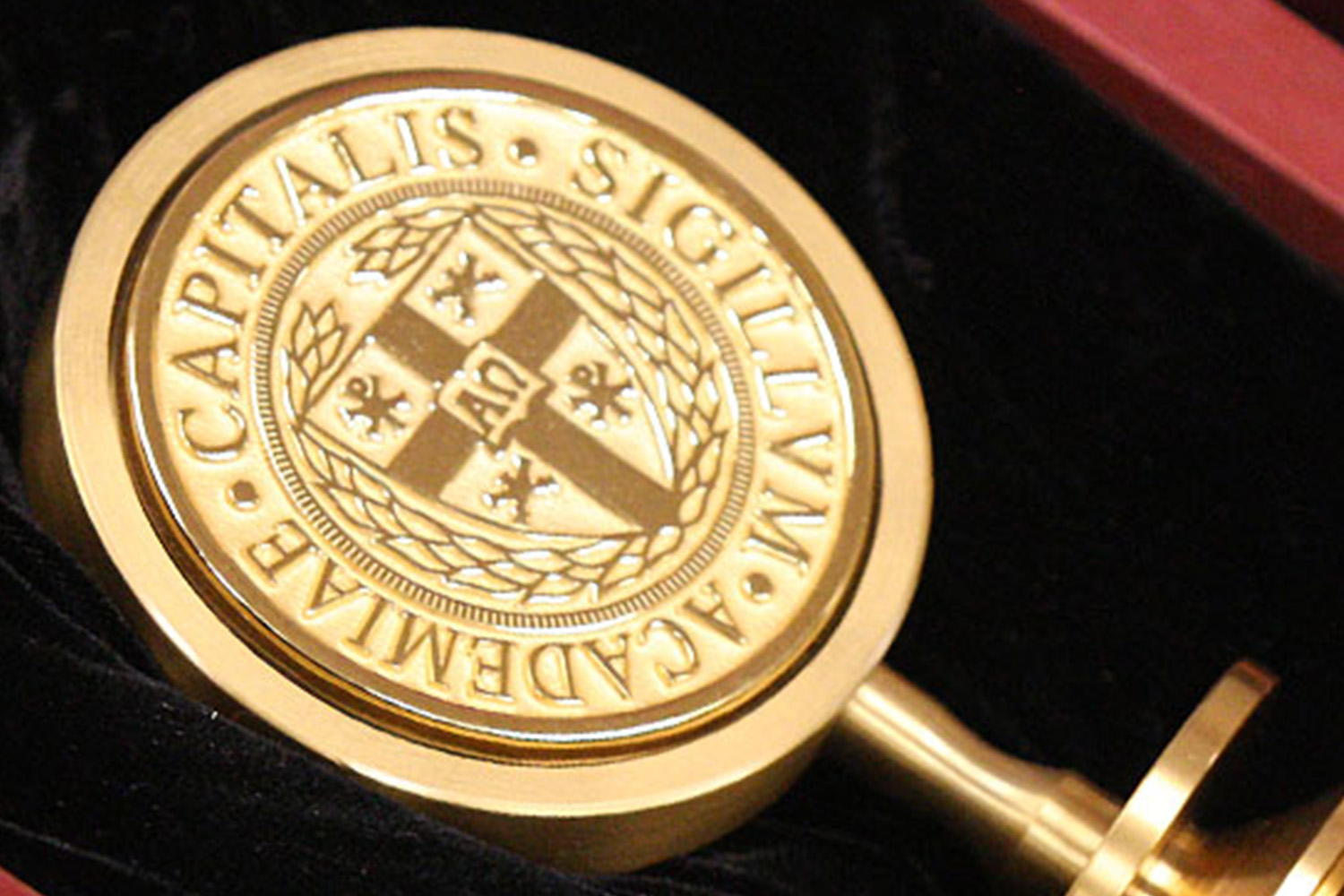Student Government
The Role of Capital University Student Government
The main functional roles of CUSG are to fund student organizations, represent the student body and serve as the liaison between the student body and the administration. Each year, Capital University provides Student Government a budget which is controlled by the Legislative and Executive Branches. With it, we fund service learning projects, student organization-sponsored campus activities, charity fundraisers, concerts, and speakers. Our hope is that with our financial contribution and efforts, students will have the means to enrich their Capital experience with meaningful activities in accordance with the University's mission to inspire life-long learners. We also hope that our campus continues to grow and to improve with each incoming class.
As the voice of the undergraduate student population of nearly 3,000, the 30+ member Student Senate makes decisions, which impact the academic and cultural environment of our small campus community. Through resolutions, we suggest policy reform, improvements to buildings and information technology, and academic program reform.
Here is just a short list of how Student Government has affected our campus community in the past five years; check our Public Records page to see our recent legislation
- Increased Organizational Funding
- Phillip Phillips Concert
- Library Exam Treats
- Academic building improvements in Ruff and Battelle
- Revision of the Residence Life Visitation Policy
- Approval of new student organizations
Quick Jumps

Visit us in the Student Government Office in the campus center or email us with your questions, concerns, or ideas about Capital to sg@capital.edu or follow us on Twitter @SG_Capital.
Get Involved in Senate
CUSG is always looking for ideas. The best way to engage in the Capital community is to think critically about the rigor of our academic programs, the effectiveness of our administration and student services, the quality of campus life, and the level of satisfaction of the student experience.
Each fall and spring, the student body elects Senators along with both a President and Vice-President to serve SG in the following academic year. During the school year, it isn't uncommon that positions become available on the Senate.
Student Government's Senate
The Senate is comprised of four standing committees and may include temporary committees as required and determined by the Cabinet and Executive Board. Senators serve for one year and are elected in the spring. Freshman senators are elected in the fall during a special election to fill vacant senate spots. A senator is permitted to either represent their Academic Class or Departmental School.
Objectives
To actively seek out and represent the opinions of the student body to the University through consideration of recommendations and resolutions.
To Allocate funds as requested and submitted by Approved Student Organizations and to regulate the operation of Student Government and its components by the consideration of legislation.
Academic Affairs Committee
Purpose: To consider issues regarding the academic experience of students such as, but not limited to, majors/minors, General Education Requirements, academic advising and academic support services. Committee Head: TBA
Governance Committee
Purpose: To consider issues such as, but not limited to, university planning; facilities, technology and infrastructure; admissions and financial aid; vendor relations; and university administrative support areas. Committee Head: TBA
Student Life Committee
Purpose: To review issues regarding the out-of-class experiences of students such as, but not limited to, residence life and commuter concerns, campus safety, dining, health and wellness, recreation, and athletics. Committee Head: TBA
Non-Standing Committees
Student Organization Allocation Committee
Purpose: To consider requests for funding from student organizations received by published deadlines and to determine funding allocations within the scope of the committee's authority and recommend allocations for consideration by the Senate.
Budget Committee
Purpose: To develop the annual budget for presentation to Senate and to serve as the review committee for student organization funding appeals.
Judicial Committee
Purpose: To investigate reports of impropriety or official misconduct and bring impeachment charges to the Senate along with serving as the review committee for appeals resulting from sanctions assessed for Election Rule violations.